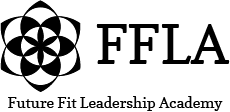As we face increasing systemic challenges, fast-shifting consumer patterns, complex global-and-local supply chains, and inter-connected wicked problems, we find the 20th century ‘organisation-as-machine’ is giving way to the 21st century ‘organisation-as-living-system’. With it comes a profound shift in how we lead, relate, partner-up and perform.
There is much we can learn from the living systems of nature and its 3.8billon yrs of R&D. One over-arching principle is that of divergence, convergence and emergence.
Divergence is a diversification, a celebration of diversity and difference. In practice this means opening up artificial boundaries between departments within the organisation and opening up stakeholder relations beyond the organisation. We allow these diverse relations to become more generative, more alive.
We need to balance this divergence with convergence, otherwise things can get too open, chaotic and lack integrity. Convergence is a bringing together, a unifying of diverse aspects through a common resonance or purpose. Traditionally, convergence has come through power-based hierarchies of control, which attempt to normalise and control discrete relations through top-down bureaucracy. This is part of the old mechanistic mind-set we need to move beyond, as this stifles agility and responsiveness in times of fast-moving change. Instead, this convergence can come through a clear sense of purpose and shared strategic intent, aligning different relationships while allowing the freedom and empowerment for these relations to adapt to local market conditions.
Out of this tension of divergence and convergence arises the third, emergence. Emergence is the flow of life, its everywhere, an unfolding evolutionary imperative that every living system and ecosystem needs to thrive.
The more effective the living system becomes at sensing into the deep sources of emergence within its ecosystem of relations, the healthier it becomes. This is a critical success factor for future-fit business, and it calls for future-fit leaders to cultivate a culture that encourages this divergent-convergent empowerment while letting-go of control-based bureaucracy.
So often, we find ourselves bumping up against all sorts of cumbersome, bureaucratic and out-dated modus operandi. This stifles the organisation’s potential for greatness. We are our own worst enemy, confining our organisations instead of freeing them up to adapt and thrive.
The old machine mind-set views stakeholder relations as point-to-point chains of exchange: either a win-lose relation where we use cost as the key driver to maximise profits at the expense of the other; or a win-win where each party benefits through a mutually beneficial relation of exchange. We manage these point-to-point relations through centralised functions with quantised metrics, formal tender procedures, overarching bureaucratic mechanisms, and pre-defined account management functions. That’s just the way we do things around here. This logic undermines what could be possible, and it’s certainly not the logic of life. Yes we need structure and formality, and yet we first-and-foremost need humanity, aliveness, shared purpose and relationality.
The aliveness and responsiveness of our organisation is intimately entwined with the aliveness and responsiveness of our stakeholder relations. The more alive, personable and synergistic we allow our relations to be, the more we will deepen our organisation’s emergence.
Generative stakeholder relations treat each relation as an inquiry, an exploration, an authentic undertaking, where we seek win-win-win outcomes that benefit not just each other but the wider ecosystem of relations we are operating in, including society and the environment.
Cultivating these generative stakeholder relations becomes less about formal tenders and more about creating the right conditions conducive for generative discussions.
We hold generative discussions with each stakeholder, to openly explore the synergistic value of the relation and the shared concerns, insights and opportunities that an emergent future may bring us.
Then, we bring a variety of different stakeholders together, through group generative dialogue discussions in settings conducive for authentic informal explorations – for instance a two-day away workshop including some time to walk together in nature, so our work masks can drop away to reveal our deeper humanity.
Diverse stakeholders from different yet interconnected parts of our ecosystem come together and openly share. It may be uncomfortable, perhaps even clumsy, for some people to start with. Messy is fine, its real, and it gets us to interesting places. We begin to see the interconnections in the eco-system, we sense the synergies and opportunities, and we see the bigger picture, identifying ways to co-innovate a brighter future.
Some may sense they are competitors with others, or partners and suppliers, or have never come across each other before. We create space for these diverse stakeholders to share openly about how things are now, the problems and opportunities, and how we can best adapt for our emerging future together. All sorts of wonderful insights come into view when we bring diverse groups together. The trick here is holding-the-space in a generative, respectful and deep way.
We are allowing an aliveness to unfold in our ecosystem of relations. We are welcoming humanity back into our relations. This aliveness spawns win-win-wins beyond business-as-usual, it creates co-creativity and co-innovation, it creates connectedness. This yields resilience for one and all.
Beyond the separateness of discrete stakeholder contracts, we sense into the emergence of a living system of interconnected relations. Today’s world requires our organisations to become ever more emergent, purposeful and organic. In turn, our stakeholder relations become portals for these vital synergies to thrive through a generative field of feedback, learning and sharing. We help spark the change we wish to see in the world, and have fun in the process.
Thought leader, adviser, coach and speaker Giles Hutchins is contactable on info@ffla.co

